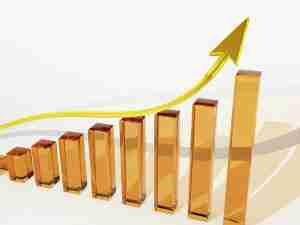"In general all countries of the region are growing at a rate of between three to seven%..," Juan Jose Daboub, the World Bank's managing director told Reuters in an interview at the end of a six nation Middle East tour, including Iraq and the Palestinian territories.
The World Bank's latest report on economic prospects for the Middle East and North Africa (MENA) region says the surge in oil prices and the boost in government expenditure has sent growth in the region to its highest levels in the past four years.
Daboub said growing challenges facing Arab economies ranged from access to education, health and providing wider job opportunities for the people of the region in addition to allowing the private sector a bigger role.
"There are many obstacles still for the private sector to cope to get and generate jobs but I found in each of the countries I visited a thinking in the same direction in order to create a better environment for these jobs to be created," Daboub said.
World Bank economists say for job creation to keep pace with new labor force entrants probably requires real GDP growth of 6 to 7% annually for a sustained period of time, double the average rate of about 3% per year achieved over the late 1990s.
Daboub gave an upbeat assessment of efforts by most Arab countries he visited such as Jordan, Kuwait and Bahrain towards introducing free market reforms and greater liberalization.
"There are different levels but in general I would say they are moving in the right direction given the fragility and volatility that exists in the neighborhood," Daboub said.
Arab Gulf states awash with windfall revenues from almost a tripling of oil prices since 2001 have made progress in efforts to diversify their oil dependent economies, he added.
"Diversification of the economy is the name of the game. I see diversification. Countries such as Kuwait and Bahrain are moving in a steady pace towards reforms while diversifying their economic base away from oil," he added
Governments in the region are ploughing money into giant infrastructure projects to help wean their economies off oil exports.
"They are also managing in a very responsible way the resources and revenues they are obtaining for those years when those resources might not be available," he added.
Last year the surge in oil prices boosted oil revenues of oil exporters by 32% to $160 billion according to latest World Bank figures.
Daboub said combating corruption and improving governance were critical to fighting poverty and preventing misallocation of resources.
"In order to remove obstacles you need to have governments that are clear about good governance, about fighting corruption and about having the right reforms in place so that you could send positive signals for the private sector," he said.
The World Bank would press ahead with programs in violence ridden areas such as Iraq and the Palestinian territories, Daboub added citing a $25 million grant for job creation announced during his visit to the West Bank, he added.
In Iraq, the World Bank was already committed despite the troubles to over $500 million of aid in priority sectors such as social safety nets and restoration of basic services.
But the rising violence in Iraq, the Palestinian territories and prospects of civil strife in Lebanon dampened long term economic prospects and flow of foreign investments, he added. (Reuters)








